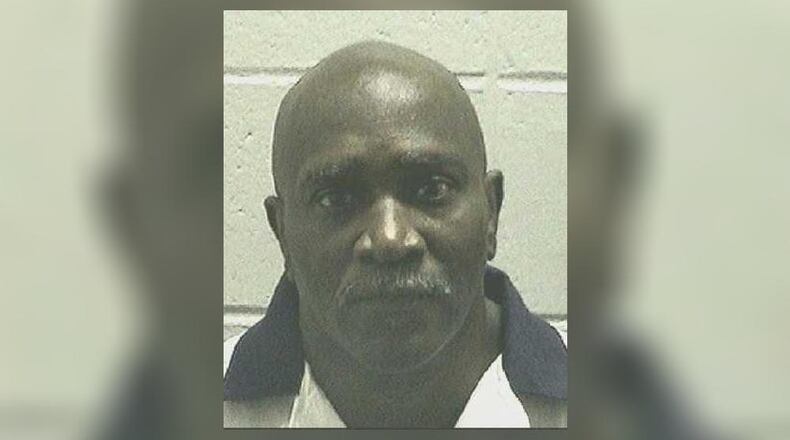The federal appeals court in Atlanta on Friday rejected a condemned Georgia inmate's appeal that contended a juror's racist views prejudiced the case.
A three-judge panel of the 11th U.S. Circuit Court of Appeals unanimously ruled that Keith Tharpe’s claims were barred on procedural grounds. The panel also said a 2017 opinion by the U.S. Supreme Court that allows courts to consider evidence of racial animus by jurors could not be applied retroactively to Tharpe’s case, which was tried 27 years ago.
Even so, one judge expressed great discomfort with the outcome. The juror’s “repugnant comments were rife with racial slurs (and) deeply seeded views regarding integration, interracial marriage and the like,” Judge Charles Wilson wrote separately.
Seven years after Tharpe's trial, juror Barney Gattie signed a sworn statement, in which he said, "After studying the Bible, I have wondered if black people even have souls."
The murder victim came from a family of “nice black folks,” Gattie said. “If they had been the type Tharpe is, then picking between life and death for Tharpe wouldn’t have mattered so much. My feeling is, what would be the difference?”
In the affidavit, Gattie used a racial slur when referring to Tharpe. Gattie, who is deceased, later recanted his incendiary comments.
Tharpe sits on death row for the 1990 murder of his sister-in-law, Jaquelin Freeman. He had intercepted Freeman and his estranged wife in Jones County as they set out for work. Tharpe dragged Freeman out of their car and shot her three times. He then kidnapped his wife.
In January, the U.S. Supreme Court told the 11th Circuit to further examine the racist juror claims. The led to Tharpe's appeal being rejected on Friday in a decision by 11th Circuit judges Gerald Tjoflat, Stanley Marcus and Wilson.
The court said it ruled against Tharpe on procedural grounds because his lawyers didn’t raise his juror racial bias claims when required — during his state court appeals years ago.
In his concurring opinion, Wilson criticized his court’s treatment of Gattie’s affidavit, noting it previously referred to what he said as “offhand comments.” To the contrary, Gattie’s statements “clearly indicate a reliance on racial animus to convict or sentence a defendant,” Wilson said.
If the Supreme Court had not intervened, "it seems that we would have approved of the idea that Mr. Gattie's affidavit would not have amounted to prejudice," Wilson said. "I do not stand by that idea."
Tharpe’s lawyer, Brian Kammer, said he will appeal to the Supreme Court.
“The 11th Circuit said that a death row prisoner cannot appeal his sentence even though one of the jurors who imposed his death sentence called him the N-word and admitted that his vote to sentence Mr. Tharpe to death was based on Mr. Tharpe’s race,” Kammer said. “Keith Tharpe’s case cries out for a full appeal where the strong evidence that racial bias led to his death sentence can be carefully examined.”
About the Author
The Latest
Featured



